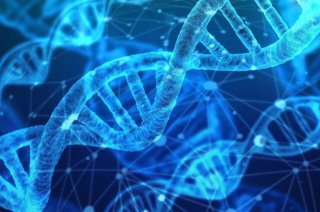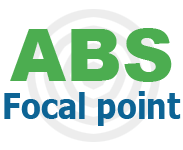
News
Policy options for Access and Benefit-Sharing (ABS) and Digital Sequence Information (DSI)
An international discussion is currently taking place on whether the use of genomic information (“digital sequence information” or DSI) on genetic resources should be subject to Access and Benefit-Sharing (ABS) obligations. Various policy options on how to deal with access to and benefit-sharing from the use of DSI have been developed. The Dutch ABS Competent National Authority is interested in hearing the experiences of Dutch stakeholders with DSI and their opinions on the DSI policy options.
In the previous newsletter (May 2021) we explained that it is currently being discussed if the use of genomic information, similar to the use of genetic resources, should also be subject to access and benefit-sharing obligations. In this discussion, genomic information (and sometimes other information on genetic resources as well) is usually referred to as ‘digital sequence information’ (DSI), although the term DSI is not clearly defined.
In general, consensus exists that access to and use of DSI is extremely important for the conservation of biodiversity and sustainable development. However, views diverge on whether access to DSI and the sharing of benefits from its use are currently fair and equitable. Countries also have different opinions on whether and how access to DSI and benefit-sharing from its utilisation should be regulated. This divergence in opinions has become a major barrier to finding agreement on DSI and other aspects of the Convention on Biological Diversity (CBD) and other international agreements.
A range of options/scenarios of how to deal with access to and benefit-sharing from the use of DSI on genetic resources have been developed (a more detailed overview can be found on the website of the CBD).
- Option 0: Status Quo: no agreement on how to address ABS for DSI; countries may include DSI in their national ABS legislation.
- Option 1: DSI fully integrated into CBD and Nagoya Protocol: DSI regulated in the same way as genetic resources; access to DSI on the basis of Prior Informed Consent (PIC) and Mutually Agreed Terms (MAT); benefit-sharing linked to DSI; benefit-sharing with individual countries (bilateral mechanism) on the basis of MAT; MAT to be negotiated.
- Option 2.1: Each country has a standard MAT/license: access to DSI not regulated (no PIC required); benefit-sharing linked to DSI; benefit-sharing obligation arises following certain ‘triggers’ (e.g. commercialisation); benefit-sharing with individual countries (bilateral mechanism); every country can introduce its own standard MAT or license.
- Option 2.2: Standard MAT/license at the international level: access to DSI not regulated (no PIC required); benefit-sharing linked to DSI; benefit-sharing obligation following certain ‘triggers’ (e.g. commercialisation); benefit-sharing with individual countries (bilateral mechanism); benefit-sharing on the basis of one or more international standard MATs/licenses.
- Option 3.1: Payment for access to DSI: no PIC and no MAT required for DSI; users pay for access to global DSI datasets, for instance through membership fees or separate payments; benefit-sharing payments go into a multilateral fund (multilateral mechanism).
- Option 3.2: Other payments and contributions: no PIC and no MAT required for DSI; no direct payments for access to global DSI datasets; multilateral benefit-sharing fund filled in another way (e.g. through levies on products, biodiversity bonds, labels or voluntary contributions).
- Option 4: Enhanced technical and scientific cooperation: no PIC and no MAT required for DSI; benefit-sharing not linked to DSI; enhanced capacity support for developing countries to enlarge their capacity to use DSI; this option can be combined with other options.
- Option 5: No benefit-sharing from DSI: it is agreed that benefit-sharing from DSI is not necessary; no benefit-sharing mechanisms are implemented.
In the framework of the CBD, these options will be discussed in the Third Meeting of the Open-ended Working Group (OEWG) on the Post-2020 Global Biodiversity Framework, which will take place as a virtual meeting from 23 August to 3 September 2021. It is expected that decisions will be made during the Fifteenth meeting of the Conference of the Parties (COP) to the Convention on Biological Diversity, of which the dates are still to be determined. At the moment, the EU countries are contemplating and discussing the position to be taken during the OEWG in August/September.
The ABS Competent National Authority of the Netherlands (Ms Kim van Seeters; k.vanseeters@minlnv.nl) remains highly interested in hearing the experiences of Dutch stakeholders with DSI and their opinions on the options that have been developed.
